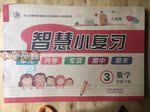题目内容
根据短文内容,判断正误(正确“T”,错误“F”),并将答案涂到答题卡的相应位置上。
“Which is the right bin for my rubbish?” This may be the most asked question in Shanghai since it started a new garbage-sorting (垃圾分类) program on July 1, 2019 When learning about the four kinds of rubbish-wet, dry, recyclable (可回收的) and harmful-many people maybe don' know how to properly sort it.
To help people solve this problem, China's technology companies are giving a hand. For example, if you want to know which bin your wet wipes (湿巾) should go in, you can just open a mini app in WeChat or Alipay and look for “wet wipes”. The app will give you the answer right away. Soon, you might do it in an easier way. Maybe you can just take a photo of the rubbish and then be told where it should go.
This kind of technology is called image recognition (图像识别). It uses artificial intelligence (AI, 人工智能). Many companies around the world are making garbage-sorting robots that use this technology. For example, AMP Robotics in the US has made a robot that can sort food and drink packages (包装).By “seeing” pictures on the packages, the robot will pick up the rubbish and put it in the right place.
The future of garbage-sorting looks good. But it's not the best way. The best thing we can do is to make less rubbish in the first place.
1.The people in Shanghai must put the rubbish into the right bin since July 1, 2019.
2.People know how to sort the five kinds of rubbish.
3.WeChat can help people sort the rubbish correctly.
4.According to paragraph 3, garbage-sorting robots can only “seeing”pictures on the packages.
5.Making less rubbish is the best thing we can do in the first place.
 智慧小复习系列答案
智慧小复习系列答案
